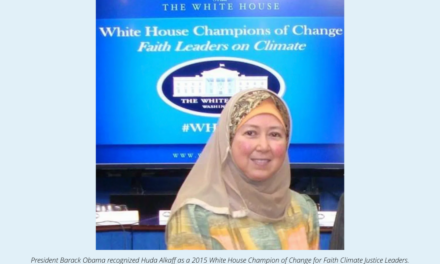Wisconsin’s Covid-19 deaths surpassed 150 last week, the state’s businesses saw a 52% decrease in foot traffic compared to end of March 2019 and state unemployment claims have soared, according to reports in The Milwaukee Journal Sentinel. With all this bad news, schools and work moving online and social distancing the new norm, no wonder many of us feel anxious!
Yet, “compared to adults, children are more vulnerable to the emotional impact of traumatic events that disrupt their daily lives,” according to Child Trends, a nonprofit, nonpartisan research center in Bethesda, Maryland, that conducts research on children, children’s families, child well-being and factors affecting children’s lives.
The good news? Parents have the power to make a difference in their children’s well-being, according to Milwaukee-based child and adolescent psychiatrist Dr. Azar Yunus. He offered the following tips in an interview this week with the Wisconsin Muslim Journal.
Talk with your children
“We talk with children based on their developmental age. Parents usually know best their child’s level of understanding.
“Keep two principles in mind. The first is honesty. The situation is serious. Don’t hide anything, but do explain at their level.
“The second principle is reassurance. That’s what our children look to us for. Tell them, ‘We are here for you and will protect you to the best of our ability.’ Also, let them know that they can do their part: ‘Keep your distance from others and wash your hands often.’”
Maintain a routine
“The most important thing to do in times of crises is to maintain a sense of routine. We all need it and especially children. Create a normal day. Get up in the morning. Take a shower and get dressed. Have breakfast – and maybe now your family can be together for breakfast.
“Maintaining structure throughout the day is important for kids. Make a schedule like they have at school with recess, study time, lunch time and rest.
“The challenge for many parents who have to work from home is that they need a quiet environment themselves. If we organize the day, everyone can function much better.”
Go outside
“It is important to go outside, especially now that the weather is getting better. The reality is that staying cooped up is isolating and not good for your mental health.
“Just be careful to keep the social distance parameters. Let your children know that they can’t go to a public playground or play basketball with the neighbors.”

Limit exposure to news
“I would guess most households have news on, so kids are seeing all that as well.
“I think limiting access to television is important. We can watch the news when they are asleep. I check headlines on my phone to see if anything new has happened. So much of what is on TV is a blame game that is not helpful. And it is the same thing over and over – hospitals are overwhelmed, people died, businesses closed. We can give updates to our kids, probably in less than 60 seconds.
“The goal is to limit the negative interactions children have with us and with their environment, and media is part of their environment.”
Check our attitudes
“Children will gage their parents’ reactions to the news and to our new situation. If parents react with anger or fear, it fuels their children’s anxiety.
“For us to keep a calm demeanor is important.”
Consider the opportunities
Locked down in a pandemic, “families have opportunities to do more things together – meals, walks, games, stories, you name it. It presents an amazing opportunity to bond as a family.
“For those Muslims who want to develop spiritually, there are more opportunities to pray together, to read Quran or to listen to lectures. Many find comfort in faith in difficult times.”














